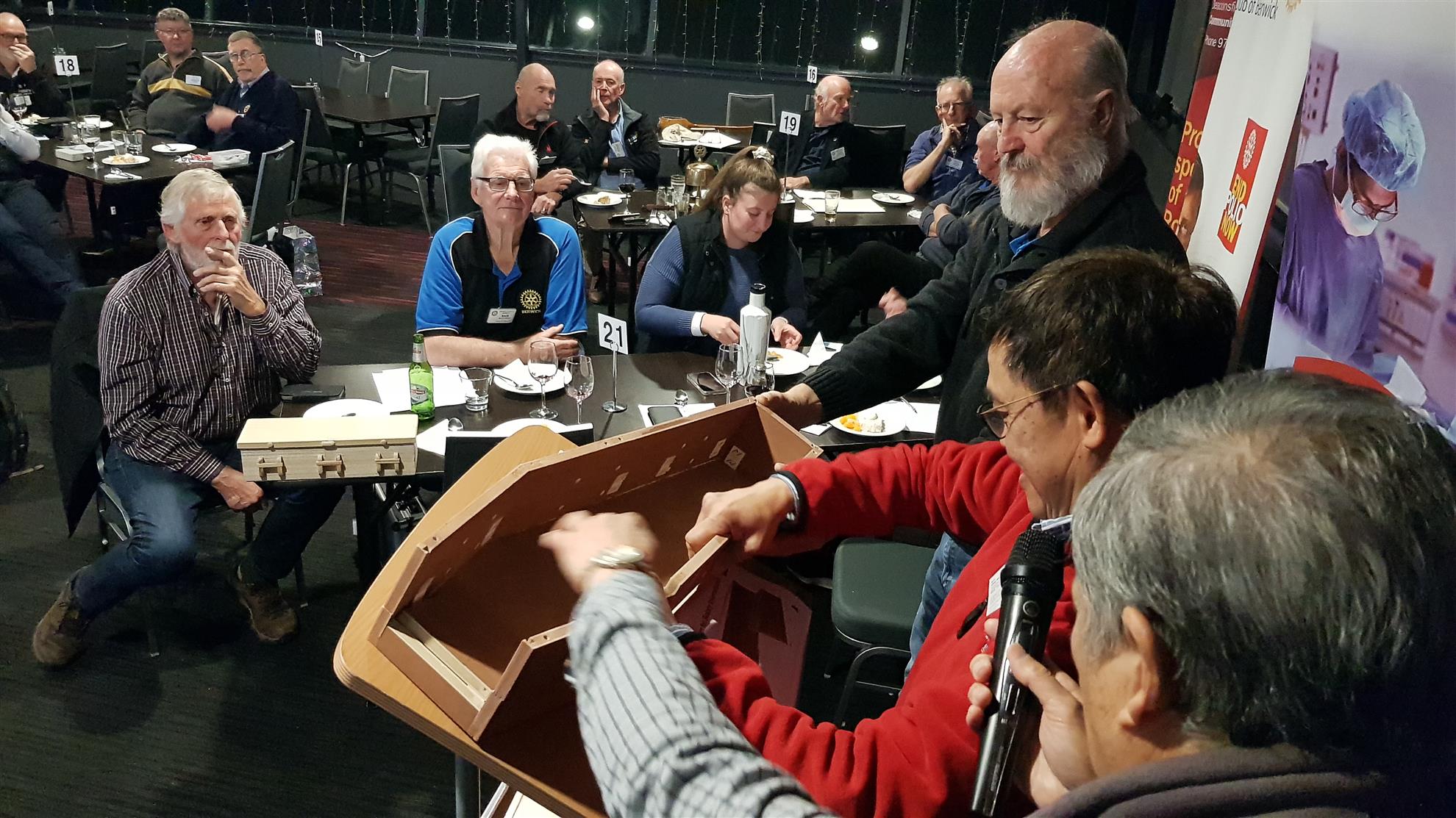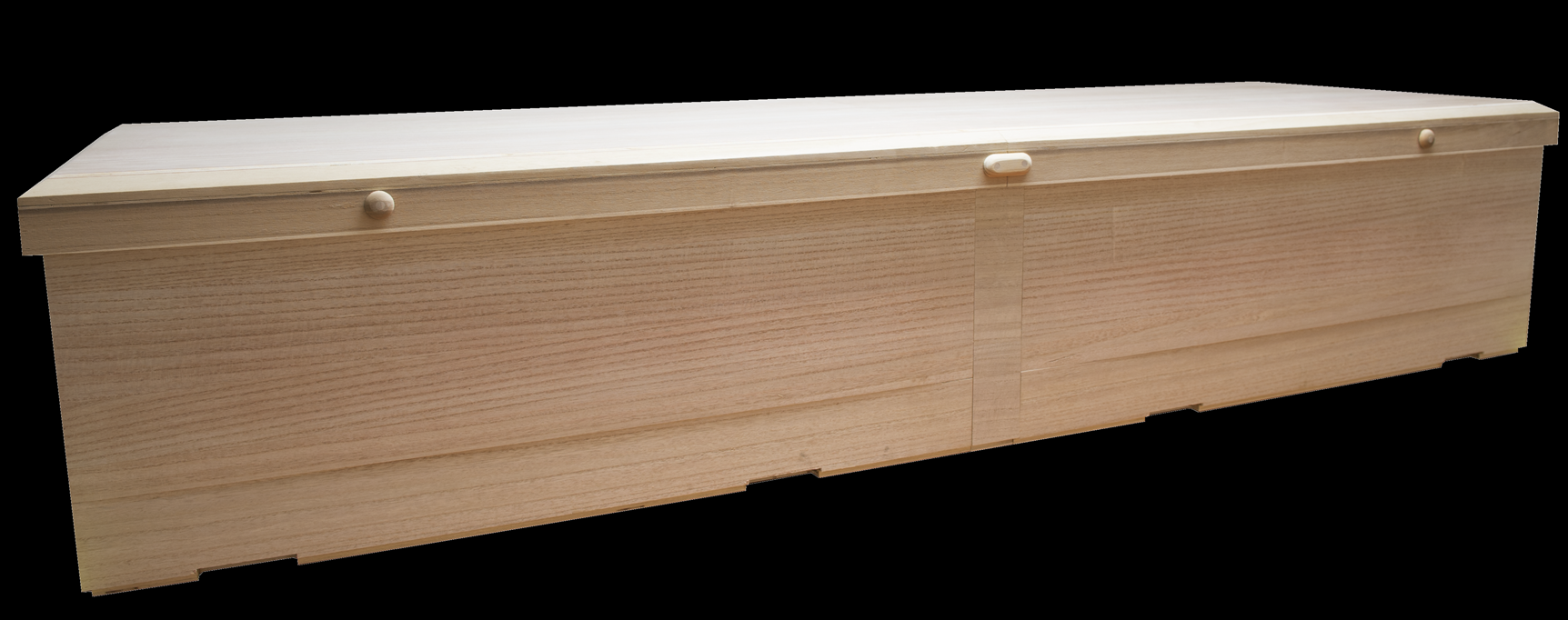 |
This week's meeting had it all! Life and death, engineering, business, humanitarian pursuits and bad internet. There was something for everyone and all members attending Holm Park were very interested in the topic for the night, flat-packed coffins. Perhaps some were window shopping for a loved one, others were intrigued by the engineering and manufacture and I was interested in the humanitarian aspects that Rotary may be able to utilise. Unfortunately, the internet was dodgy, but the Zoomers all hung in there and hopefully got the gist of the presentation, even though they probably didn't see it. Our caterers put on a terrific dinner and the atmosphere in the room was alive. A great night out on a cold winter night.
Speaker Casey Wong from ICONTAINER spoke about the engineering, manufacture and marketing of a range of patented flat-pack coffins and caskets. The coffins were designed to take up as little space as possible (unassembled), easily fitting in the boot of a normal car and weighing less than 30kg. This was important for ease of distribution and storage, especially if used in areas of natural disasters or war zones.
Assembly of the coffin takes around eight minutes and there are no nails or tools required. This allows family members to be involved in putting it together and decorating it if they wish. The coffin is designed to hold one tonne, so it is very robust!
The coffins are currently made from plantation grown Paulownia tomentosa (Empress tree), one of the worlds fastest-growing trees, growing up to 30m tall. For the tree geeks out there: Trees can grow to maturity in under 10 years and produce strong, lightweight timber, good as firewood, with an even higher strength to weight ratio than balsa wood. This tree is grown widely in China, but is native to Japan and Korea. From a cremation point of view, using lightweight timber with no nails means there is a faster burn rate, little ash and no metal to recover.
Humanitarian opportunity: IContainer are looking towards Rotary International to make these coffins and caskets available in areas of natural disasters and war zones. If utilized in poorer nations that have manufacturing capabilities, there is also an option for local manufacturing to avoid transport costs. The "Rotary version" would not have handles, as this is an expensive part of manufacture. They are currently manufactured in China, but these are early days for this business and their focus is mainly on the humanitarian side, rather than disrupting traditional markets.
 |
This talk was organised by Rotarian Adwin Town. The presentation pdf can be found HERE (21Mb)
Casey Wong can be contacted by email: caseywong@icontainer.cc
Happy Snaps taken by our great photographer Sandi can be found HERE

